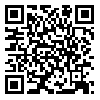BibTeX | RIS | EndNote | Medlars | ProCite | Reference Manager | RefWorks
Send citation to:
URL: http://jdm.tums.ac.ir/article-1-394-en.html
Statement of Problem: Pain control is of high importance in dentistry. Prescribing sedatives such a Diazepam, as an anti-depressant and pain threshold elevator drug is able to influence the patient's reaction to pain and reduce it.
Purpose: The aim of the current study was to evaluate the effect of Diazepam in pain reduction following mandibular impacted third molar surgery.
Materials and Methods: In this study, which was conducted in the department of Oral and Maxillofacial surgery Faculty of Dentistry, Tehran University of Medical sciences. The patients were divided into two equal groups (n=30). For controls, antibiotics and analgesics were prescribed after surgery. However, except the aforementioned drugs, Diazepam (5mg), three times per day, was prescribed for the experimental group. The amount of mouth opening was also measured as an auxiliary sign after one week. The data were compared by
X2 test after one week.
Results: 60% of the experimental group and 13.8% of the control group felt a weak pain. Statistically significant differences were observed regarding pain feeling between two groups (P<0.001). Severe pain feeling was 34.5% and 10%, for control and experimental groups, respectively.
Conclusion: It is suggested that Diazepam is an effective pain reduction drug following third molar surgery.This drug has also a relative effect on temporary trismus resulting probably from muscle trauma or pain.
| Rights and Permissions | |
 |
This work is licensed under a Creative Commons Attribution-NonCommercial 4.0 International License. |




